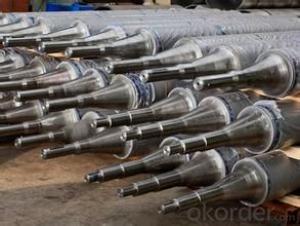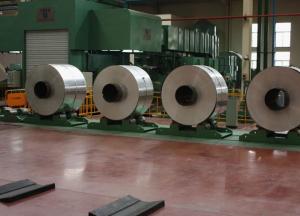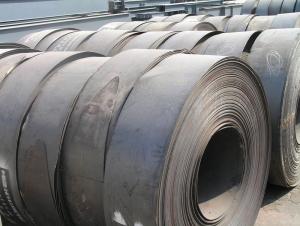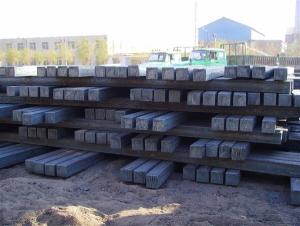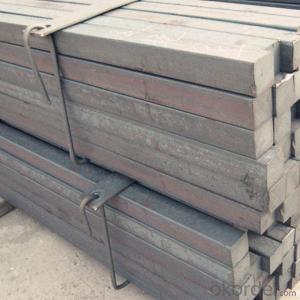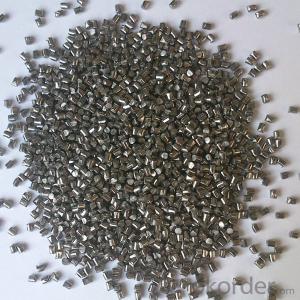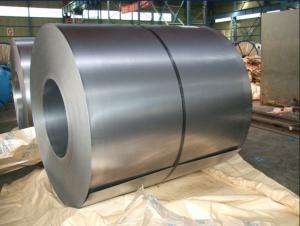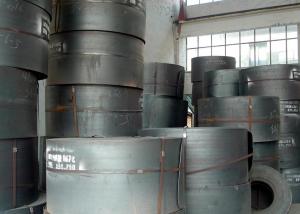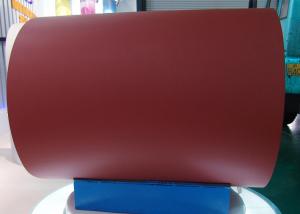Wire Batch Annealed Furnace Roll Wire annealing Furnace
- Loading Port:
- Tianjin
- Payment Terms:
- TT OR LC
- Min Order Qty:
- 1000 PCS
- Supply Capability:
- 10000 PCS/month
OKorder Service Pledge
OKorder Financial Service
You Might Also Like
Quick Details
| Condition: | New | Type: | Resistance Furnace,pit type | Usage: | Heat Treatment Furnace,tempering annealing for wire |
| Place of Origin: | Brand Name: | Model Number: | RJZ | ||
| Voltage: | 380 | Power(W): | 40-105Kw | Dimension(L*W*H): | customized |
| Certification: | ISO9001-2008 | Warranty: | 1years | After-sales Service Provided: | Engineers available to service machinery overseas |
| power: | 60-125Kw | capacity: | customized | woke size: | customized |
| temperature: | 950℃ | control system: | PID | Name: | Tempering furnace |
Packaging & Delivery
| Packaging Detail: | wooden box. |
| Delivery Detail: | 45 days from getting the advance. |
Well-type vacuum Tempering Furnace is mainly use for bright and tempering in vacuum condition.
This type of furnace consists of steel shell, sealed door, vacuum pump, lining and electeical control system.
The shell is welded by steel, the lining is piled with Refractory bricks or full fiber.
There is a sealed structory between the door and the linig to keep seal.
The PID control system is dvanced and effected
| model | power(Kw) | temperature(°C) | work size(mm) |
| JR-60-9 | 60 | 950 | 800X1000 |
| JR-75-9 | 75 | 950 | 1000X1200 |
| JR-90-9 | 90 | 950 | 1000X1500 |
| JR-135-9 | 135 | 950 | 1500X1800 |
| JR-125-9 | 125 | 950 | 800X3000 |
- Q:How is steel forgings machined for precision components?
- Steel forgings can be machined for precision components through a process known as machining or CNC (Computer Numerical Control) machining. This involves using specialized tools, such as lathes, mills, and grinders, to shape and refine the steel forging into the desired dimensions and specifications. Machining allows for the removal of excess material, creation of precise geometries, and the addition of intricate features, resulting in high-precision components that meet the required tolerances.
- Q:What are the different types of steel bolts and their uses in the automotive aftermarket?
- There are several types of steel bolts commonly used in the automotive aftermarket, including hex bolts, flange bolts, carriage bolts, and specialty bolts like wheel bolts and exhaust manifold bolts. Hex bolts are the most commonly used and are suitable for a wide range of applications. Flange bolts have a built-in washer-like flange that distributes the load and provides extra strength. Carriage bolts have a smooth, rounded head and are often used in applications where a smooth finish is desired. Specialty bolts like wheel bolts are specifically designed for securing wheels to the vehicle, while exhaust manifold bolts are used to connect the exhaust manifold to the engine block. Each type of steel bolt has its own specific use and is selected based on the requirements of the automotive aftermarket applications.
- Q:How are steel products used in the water treatment industry?
- Steel products are used in the water treatment industry for various purposes such as constructing water treatment plants, pipelines, and storage tanks. Steel's durability and resistance to corrosion make it an ideal material for ensuring the integrity and longevity of these structures. Additionally, steel screens and filters are used to remove impurities and contaminants from water sources, contributing to the overall efficiency and effectiveness of the water treatment process.
- Q:How do steel products contribute to the healthcare and medical industry?
- Steel products contribute to the healthcare and medical industry in various ways. Steel is commonly used in the manufacturing of medical instruments, surgical tools, and equipment due to its durability, strength, and resistance to corrosion. Steel is also used in the construction of medical facilities and hospitals, providing a strong and safe infrastructure. Additionally, steel is used in the production of medical storage cabinets, beds, and other furniture, ensuring a sterile and hygienic environment. Overall, steel products play a crucial role in providing reliable and high-quality healthcare services.
- Q:How are steel products used in the automotive industry?
- Steel products are extensively used in the automotive industry for various applications such as vehicle bodies, frames, and components. This high-strength material provides durability, structural integrity, and crash resistance, ensuring the safety of passengers. Steel is also lightweight and cost-effective, making it an ideal choice for manufacturing car parts. Additionally, steel's malleability allows for complex shaping and forming, enabling the production of intricate automotive designs.
- Q:What is the role of steel in the manufacturing of railway tracks?
- Steel plays a crucial role in the manufacturing of railway tracks as it provides the necessary strength, durability, and resilience to withstand the heavy loads and constant wear and tear of trains. It is used to construct the rails, which provide a smooth and stable surface for train wheels to run on. Steel's high tensile strength allows for longer and continuous tracks without the need for frequent expansion joints, ensuring a safer and more efficient railway system.
- Q:How do steel products contribute to the transportation industry?
- Steel products play a crucial role in the transportation industry as they are used extensively in the manufacturing of vehicles, infrastructure, and components. From cars, trucks, and trains to bridges, rails, and roads, steel provides strength, durability, and reliability. It helps in constructing lightweight yet sturdy frames, bodies, and chassis of vehicles, ensuring safety and efficiency. Additionally, steel is used in the production of bearings, gears, axles, and springs, enhancing the performance and functionality of various transportation systems. Overall, steel products contribute significantly to the transportation industry by providing the necessary strength, structural integrity, and reliability required for safe and efficient movement of people and goods.
- Q:What are the different types of steel wires and their applications?
- There are several types of steel wires, each with their own unique properties and applications. Some common types include carbon steel wire, stainless steel wire, and galvanized steel wire. Carbon steel wire is the most commonly used type and is known for its strength and durability. It is used in a wide range of applications such as construction, automotive manufacturing, and general fabrication. Stainless steel wire, on the other hand, is highly corrosion resistant and is often used in industries where hygiene and cleanliness are important, such as food processing and medical equipment manufacturing. Galvanized steel wire is coated with a layer of zinc to protect it from rust and corrosion. It is commonly used in outdoor applications such as fencing, electrical wiring, and agriculture. These are just a few examples, but there are many other specialized types of steel wires available for specific applications, such as piano wire, spring wire, and welding wire. The choice of steel wire depends on the specific requirements of the application, including strength, corrosion resistance, and conductivity.
- Q:Can steel be recycled?
- Yes, steel can be recycled.
- Q:What are the different types of steel fasteners and their uses?
- There are various types of steel fasteners, including screws, bolts, nuts, and washers. Screws are used to secure materials together, while bolts are used in assemblies that require a higher level of strength and rigidity. Nuts are paired with bolts to secure them in place, and washers are used to distribute the load and prevent damage to the material being fastened. Each type of steel fastener has its own specific uses depending on the application and the level of strength required.
1. Manufacturer Overview |
|
|---|---|
| Location | |
| Year Established | |
| Annual Output Value | |
| Main Markets | |
| Company Certifications | |
2. Manufacturer Certificates |
|
|---|---|
| a) Certification Name | |
| Range | |
| Reference | |
| Validity Period | |
3. Manufacturer Capability |
|
|---|---|
| a)Trade Capacity | |
| Nearest Port | |
| Export Percentage | |
| No.of Employees in Trade Department | |
| Language Spoken: | |
| b)Factory Information | |
| Factory Size: | |
| No. of Production Lines | |
| Contract Manufacturing | |
| Product Price Range | |
Send your message to us
Wire Batch Annealed Furnace Roll Wire annealing Furnace
- Loading Port:
- Tianjin
- Payment Terms:
- TT OR LC
- Min Order Qty:
- 1000 PCS
- Supply Capability:
- 10000 PCS/month
OKorder Service Pledge
OKorder Financial Service
Similar products
New products
Hot products
Related keywords
